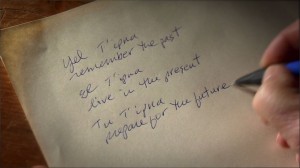>> About the Film
>> Making the Film
>> Credits
>> About Harry Dawson
>> About Meighan Maloney
Paskenta: Nomlaqa Bōda
A 100-minute film featuring the Paskenta Band of Nomlaki Indians of Northern California
I first was introduced to the Paskenta Band of Nomlaki Indians back in 2006, when some of the tribe’s elders asked us to assist them in documenting their history on film. Like many 21st Century tribes whose history has been passed down in the oral tradition, the Nomlaki were seeking additional avenues to preserve and pass on their stories.

The Paskenta Band of Nomlaki Indians have adopted this precept as a measure of their continued resilience in the face of adversity.
Over the next four years, we collaborated on every aspect of this project—and what started as a film to share within the Nomlaki Tribe quickly grew into a full-length documentary preserving stories known only to a few remaining elders.
I knew the film had to remain true to the nature of oral histories, with their sometimes non-linear, sometimes a-chronological organization. And I realized that this wasn’t an “Indian doc”—it was much more universal. In fact, for a long time, we joked that the title should be “No Drums, No Feathers” as a way to get people to leave their assumptions at the door of the screening room.
At its essence, this is the story of this small tribe in northern California who endured, resisted and survived through centuries of oppression. But it is also a larger-than-life, true “American success story.” Nomlaqa Bōda is a film that resonates with a wider audience that can identify with the pain of oppression and, most importantly, celebrate the spirit of resilience.
I have been shooting films with tribes around the U.S. since the early 1970s, but this was a unique opportunity to present a story with no outside narrator, told fully in the voices of the people whose lives and families shaped and were shaped by the historical events.
What started as a limited “oral history” assignment soon turned into one of the most daunting and uplifting projects of my 30-year career, as I came to care deeply for the people and their history, and realized the responsibility I shared for helping get their story out to the world.
– Harry Dawson, 2011
Director/Cinematographer
